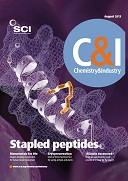Epilepsy affects around 50m people worldwide and while current drugs work for many and hold seizures at bay, they have side effects. Valproic acid, one of the most highly prescribed anti-epileptics, has been linked to birth abnormalities if taken by women in the first trimester of pregnancy.
Now researchers at Royal Holloway University of London and University College London in the UK have identified a new class of potent anti-epileptic drugs without such ‘teratogenic’ side effects, including some from an unusual source: coconut milk.
Robin Williams, professor of molecular cell biology at Royal Holloway, explains: ‘Little is known about how many of the current anti-epileptics work and without knowing how valproic acid acts in the cell to stop seizures it is impossible to make any modifications to reduce its side effects.’
His team took a single-cell amoeba, Dictyostelium, and exposed it to valproic acid. They found that the drug causes a chemical change in the cell – it blocks the production of phosphoinositides, a binding substrate for enzymes.
Armed with this information, the researchers tested over 100 short and medium chain fatty acids for their ability to block the substrate, and found several compounds that had a stronger effect than valproic acid. All of them were medium chain fatty acids – including decanoic acid from coconut milk.
The researchers did a database search and discovered that two of the compounds – decanoic and octanoic acid – were found in blood samples of children who were on the MCT (medium chain triglyceride) ketogenic diet, a high fat, low carb diet for epileptics. ‘Our discovery of medium chain fatty acids that block seizures and are found in children’s blood protected from seizures by using the MCT ketogenic diet was an incredible revelation,’ says Williams.
Until this time it was thought that the ketones produced by this diet were responsible for stopping seizures, but Williams says experiments do not confirm this. His group is currently investigating the mechanism of action of its medium chain fatty acids.
Meanwhile, results of their fatty acids animal tests reveal that they are more potent than valproic acid and without the teratogenic side effects. The team is now in discussion with clinicians to test decanoic acid, which is already in foodstuffs, in a Phase 1 clinical trial.
Williams concludes: ‘It is very important that people realise that we can now do medical research that has the potential to lead to major discoveries in health but without the same reliance on animal models as was the case in the past.’





